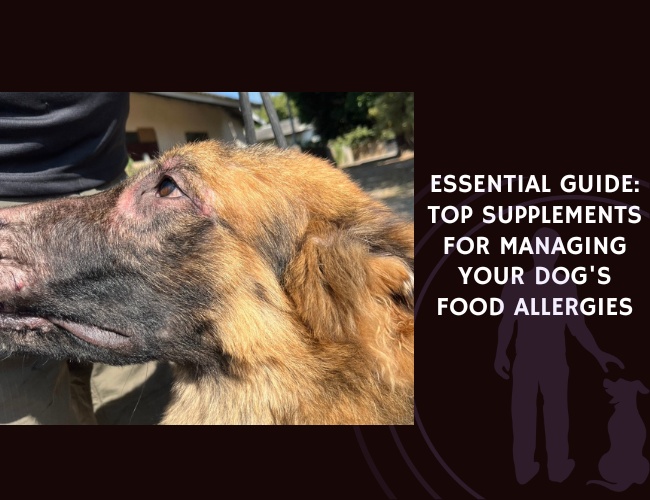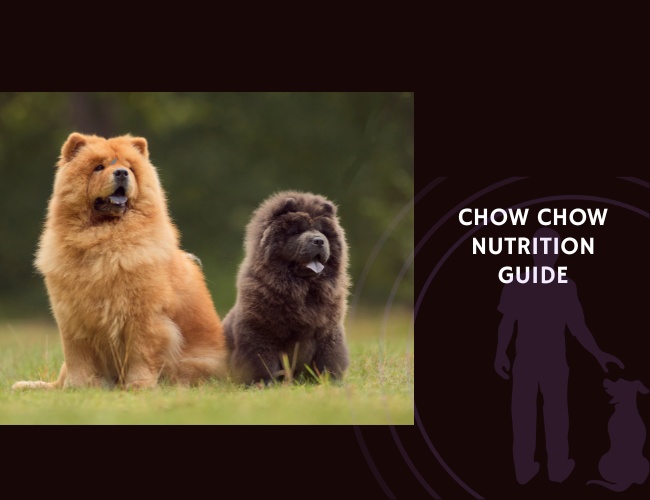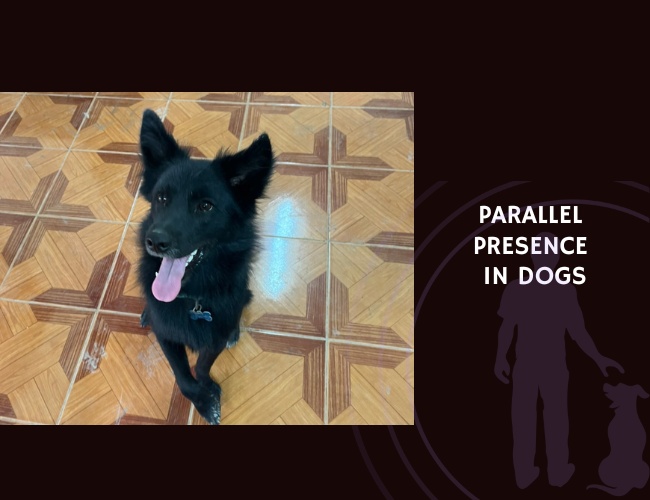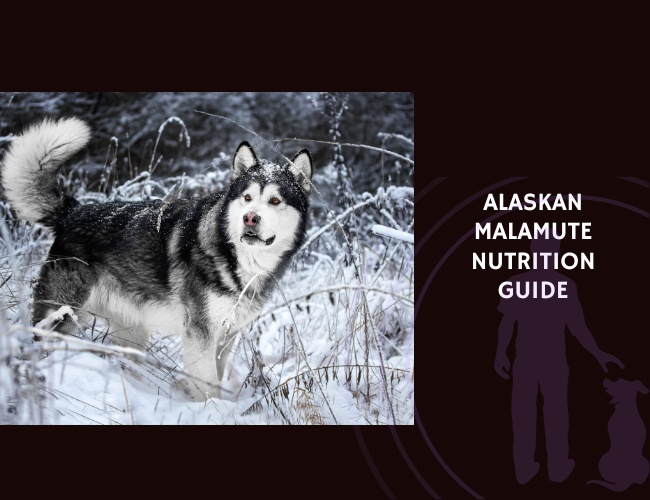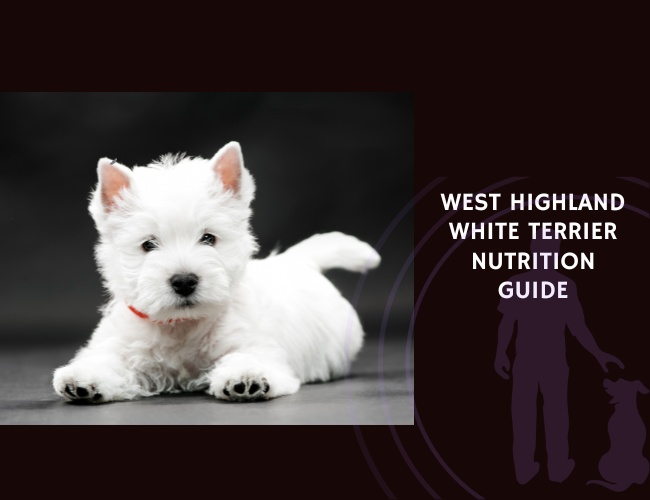Understanding Food Allergies in Dogs
Understanding food allergies in dogs is crucial for any pet owner seeking to provide the best care for their furry friends. Food allergies occur when the dog’s immune system overreacts to specific proteins or ingredients present in their diet, mistaking them as harmful invaders. Let’s dive into the common allergens, primary symptoms, and the role of the immune system in these allergic reactions.
Common Allergens
The most prevalent food allergens in dogs include:
- Beef: Despite being a popular protein source, beef can trigger allergic reactions in many dogs.
- Dairy: Lactose and casein present in dairy products can cause gastrointestinal issues and other symptoms.
- Chicken: While commonly used in dog food, chicken allergies are not uncommon.
- Wheat: Many dogs have trouble digesting wheat, leading to allergic responses.
- Soy: This plant-based protein can also be a problematic allergen for some dogs.
- Eggs: Both egg whites and yolks can trigger allergic reactions.
Primary Symptoms
Food allergies in dogs manifest in several ways, often causing significant discomfort and health issues. The primary symptoms include:
- Skin Issues: These are the most common signs and include itching, redness, hot spots, and rashes. Chronic ear infections, a telltale sign, often accompany these skin problems.
- Digestive Problems: Allergens can upset the digestive system, leading to vomiting, diarrhea, and excessive flatulence.
- Chronic Infections: Persistent ear infections, excessive paw licking, and recurring skin infections are often linked to food allergies in dogs.
Immune System’s Role in Food Allergies
The immune system plays a pivotal role in food allergies. When a dog with a food allergy consumes an allergen, their immune system produces antibodies, specifically immunoglobulin E (IgE), which triggers the release of chemicals like histamines. These chemicals cause the physical symptoms associated with allergies, such as itching, inflammation, and gastrointestinal distress.
A healthy immune system is adept at distinguishing between harmful and non-harmful substances. However, in allergic dogs, this system misfires and identifies certain dietary proteins as threats. The mistakenly perceived threat leads to the overproduction of antibodies and subsequent allergic reactions.
Effective management of food allergies in dogs often involves a combination of dietary adjustments and the use of essential supplements to support skin health, reduce inflammation, and enhance gut health. This comprehensive approach can significantly improve a dog’s quality of life.
This chapter has provided an in-depth look at the causes, symptoms, and immune response involved in food allergies in dogs. As we move forward, understanding and managing these allergies will be crucial in ensuring the well-being of allergic dogs.
Essential Supplements for Allergy Management
When managing your dog’s food allergies, integrating specific supplements into their diet can make a world of difference. These key supplements support inflammation reduction, skin health, gut balance, and more. Let’s explore the three essential supplements that can significantly enhance the well-being of dogs suffering from food allergies.
Omega-3 Fatty Acids
Omega-3 fatty acids are crucial for reducing inflammation and promoting healthy skin in dogs with food allergies. Derived from sources like fish oil, flaxseed oil, and krill oil, these fatty acids work wonders in mitigating allergic reactions.
- Benefits:
- Reduces inflammation
- Soothes itchy and irritated skin
- Strengthens the skin barrier
Clinical studies have shown that omega-3 fatty acids can improve coat quality and reduce itching in dogs with allergic dermatitis.
- Dosage:
- Always consult your veterinarian for the appropriate dosage for your dog’s specific needs. Over-supplementation can cause loose stools and other issues.
Probiotics
Probiotics are another superstar in the realm of allergy management. By enhancing gut health, probiotics help strike a balance in the immune system, which is vital for dogs dealing with food sensitivities.
- Benefits:
- Enhances gut microbiota diversity
- Improves immune system balance
- Manages gastrointestinal symptoms
Several studies indicate that probiotics can effectively reduce allergic symptoms in dogs. Dogs can benefit from probiotic-rich foods like plain yogurt (if tolerated) or commercial probiotic supplements.
- Dosage:
- Follow your vet’s recommendations for the type and amount of probiotics suitable for your dog.
Quercetin
Quercetin, often referred to as nature’s Benadryl, is a powerful flavonoid with antihistamine and anti-inflammatory properties.
- Benefits:
- Acts as a natural antihistamine
- Reduces itching and inflammation
- Calms immune overreactions
Quercetin has demonstrated significant reductions in inflammation and itching in dogs with allergies. For better absorption, it is often paired with bromelain, a natural enzyme.
- Dosage:
- As always, ensure you follow veterinary guidance to determine the right dosage for your pet.
By methodically integrating these essential supplements into your dog’s diet, you can effectively manage their food allergies and enhance their overall quality of life.
Taking the gradual approach is important when introducing any new supplement. Start with one supplement at a time, observe your dog for a few weeks, and consult your vet regularly. This strategy ensures you can monitor effectiveness and any potential side effects.
Regular monitoring and making informed decisions about supplements can keep your furry friend happy and healthy.
Supporting Supplements
When managing your dog’s food allergies, incorporating supporting supplements can make a significant difference in their overall health and well-being. These supplements are not only beneficial for alleviating allergy symptoms but also play a crucial role in enhancing your dog’s immune system, promoting skin health, and improving nutrient absorption.
Digestive Enzymes for Better Protein Breakdown and Absorption
Digestive enzymes are essential for pets with food allergies as they aid in breaking down food proteins more efficiently, helping to minimize undigested particles that can provoke allergic reactions. When proteins are properly broken down, the likelihood of the immune system misidentifying them as allergens decreases.
Benefits:
- Aids in breaking down food proteins
- Improves nutrient absorption
- Minimizes undigested proteins that can trigger allergies
Sources:
- Papain (from papaya)
- Bromelain (from pineapple)
- Commercial enzyme blends [source: 1. Understanding Food Allergies in.txt]
By enhancing digestion, these enzymes ensure that your dog derives maximum nutritional benefit from their diet. This can be particularly useful when switching to hypoallergenic or novel protein diets, as discussed in earlier chapters.
Vitamins E and C as Antioxidants for Immune Support
Vitamins E and C are powerful antioxidants that play a vital role in reducing oxidative stress within your dog’s body. These vitamins support the immune system, helping to repair damaged tissues and maintain healthy skin.
Vitamin E
Benefits:
- Protects cells from oxidative damage
- Supports skin health
- Strengthens the immune system
Vitamin C
Benefits:
- Promotes immune function
- Aids in the repair of body tissues
- Reduces inflammation
Including these vitamins in your dog’s daily regimen can provide enhanced protection against the oxidative stress caused by chronic inflammation and allergic reactions.
Zinc and Colostrum for Immune System Regulation
Zinc and colostrum are potent supplements that help regulate your dog’s immune system, ensuring it functions optimally while mitigating allergic responses.
Zinc
Benefits:
- Essential for skin repair
- Reduces inflammation
- Supports a healthy coat
Zinc is vital for the maintenance and repair of your dog’s skin, making it particularly beneficial for dogs experiencing skin issues due to allergies. It also plays a role in reducing inflammatory responses, providing relief from some of the discomforts associated with allergies.
Colostrum
Benefits:
- Rich in antibodies
- Strengthens the immune system
- Helps regulate allergic responses
Colostrum, the first form of milk produced by mammals immediately following the birth of their young, is packed with antibodies that bolster the immune system. When given to dogs, colostrum can help regulate their immune responses, making them less prone to overreacting to allergens in their diet.
By integrating these supporting supplements into your dog’s daily routine, you can significantly improve their overall health and quality of life while managing food allergies. Remember to introduce each supplement gradually and consult with your veterinarian to ensure proper dosage and to monitor for any potential side effects.
Next, we will explore how to implement these supplement strategies effectively, ensuring that your dog receives the maximum benefit while minimizing risks.

Implementing Supplement Strategies
Guidelines for Gradual Supplement Introduction
Integrating supplements into your dog’s diet can be highly beneficial for managing food allergies, but it’s crucial to proceed gradually. Start by introducing one supplement at a time. This allows you to monitor any responses and determine its effectiveness. For instance, if you want to start with omega-3 fatty acids, introduce a small dose and observe your dog over a week. Note any improvements in skin health or reductions in inflammation.
After you confirm that your dog tolerates the initial supplement well, you can then introduce the next one, such as probiotics or quercetin. By introducing them sequentially, it becomes easier to identify which supplement is providing benefits and to detect any potential side effects early on. This methodical approach ensures that you are not overloading your dog’s system with too many new substances at once, which could cause confusion or adverse reactions.
Patience is key in this process. Supplements may take several weeks to show noticeable effects, so ensure each new supplement is given adequate time to work before introducing another.
Proper Dosage and Veterinary Consultation Importance
It’s paramount to determine the correct dosage for each supplement. Dogs differ in size, weight, and health status, so dosages can vary significantly. Consulting with a veterinarian is essential to tailor a supplement regimen to your dog’s specific needs. Veterinarians can also guide you on reputable supplement brands that have been scientifically validated for efficacy and safety.
For instance, veterinarians can provide precise dosing instructions for omega-3 fatty acids to avoid excessive intake, which can cause loose stools, a common side effect of over-supplementation. For probiotics, your vet may recommend specific strains that are known to benefit dogs with allergies. Proper veterinary guidance not only optimizes the benefits of supplementation but also mitigates potential risks.
Monitoring Effectiveness and Potential Side Effects
Once supplements are part of your dog’s diet, continuous monitoring is essential. Keep a detailed record of any changes in your dog’s condition. This includes improvements in skin health, reductions in itching or inflammation, and changes in digestive health. A food diary can be an invaluable tool in this process. By documenting daily supplement intake, diet, and any observed allergic reactions, you can better correlate improvements or issues to specific dietary changes.
It’s also important to be vigilant for any possible side effects. While supplements like omega-3 fatty acids, probiotics, and quercetin are generally safe, they can sometimes cause gastrointestinal upset or allergic reactions. For instance, digestive enzymes, if given in excessive amounts, might lead to diarrhea or stomach cramps.
Regular consultations with your veterinarian can help you adjust dosages or change supplements if necessary. If any severe adverse reactions occur, discontinue the supplement immediately and seek veterinary advice.
Transition to Next Section
By following these careful strategies, you can effectively integrate supplements into your dog’s diet to manage food allergies. The next step involves understanding how to combine these supplements with the right dietary management to provide a comprehensive approach to mitigating your dog’s allergic reactions.
Dietary Management and Supplement Integration
Combining Supplements with Hypoallergenic or Novel Protein Diets
When managing your dog’s food allergies, integrating supplements with a carefully selected diet can make a significant difference. Opting for hypoallergenic diets, which often include hydrolyzed proteins broken down to avoid immune detection, or novel protein diets featuring uncommon protein sources like venison, rabbit, or duck, can mitigate allergic reactions. Combining these diets with essential supplements such as omega-3 fatty acids, probiotics, and quercetin helps reduce inflammation, improve gut health, and manage allergic symptoms effectively. Always ensure to consult with your veterinarian to determine the ideal diet and supplement combination for your dog’s specific needs.
Maintaining a Food Diary to Track Reactions
Keeping a detailed food diary is crucial for monitoring your dog’s response to various foods and supplements. Documenting everything your dog consumes, including treats and supplements, helps identify any adverse reactions and pinpoint potential allergens. Note any changes in your dog’s skin condition, digestion, or overall behavior. This practice enables you and your veterinarian to make informed decisions about necessary dietary adjustments and supplement efficacy. Consistency is key, so make entries regularly to accurately track progress and reactions over time.
Avoiding Trigger Ingredients and Table Scraps
Avoiding potential trigger ingredients is essential for effectively managing food allergies in dogs. Common allergens, such as beef, dairy, chicken, wheat, soy, and eggs, should be excluded from your dog’s diet. Providing table scraps or unverified treats can introduce these allergens unintentionally, exacerbating allergic reactions. Educate everyone in the household about the importance of not giving your dog table scraps or unauthorized snacks. Stick to the prescribed hypoallergenic or novel protein diet and approved supplements to ensure your dog’s allergies are kept under control.
By combining a carefully selected diet with essential supplements and maintaining a meticulous food diary, you can better manage your dog’s food allergies, improving their overall health and well-being. This comprehensive approach helps avoid trigger ingredients and ensures the effectiveness of dietary management strategies.
Safety Considerations and Limitations
Managing your dog’s food allergies with supplements can greatly improve their overall health and quality of life. However, it’s important to keep several safety considerations in mind. This chapter will delve into the risks of over-supplementation, the importance of selecting scientifically validated supplements, and potential interactions between supplements and medications.
Risks of Over-Supplementation and Adverse Reactions
While supplements can be beneficial for managing your dog’s food allergies, over-supplementation can lead to adverse reactions and health issues. Like anything else, too much of a good thing can be harmful.
- Excessive Omega-3s: High doses of omega-3 fatty acids can lead to complications such as loose stools, blood clotting issues, and imbalances in other essential fatty acids.
- Probiotic Misuse: Overuse of probiotics can disrupt the natural balance of your dog’s gut flora, potentially causing digestive upset and exacerbating allergy symptoms.
- Quercetin Overload: Taking too much quercetin can lead to stomach discomfort, headaches, and in rare cases, kidney issues.
To avoid these risks, always follow the dosage recommendations provided by your veterinarian and monitor your dog for any signs of distress.
Importance of Selecting Scientifically Validated Supplements
Not all supplements are created equal. The market is rife with products making bold claims without solid scientific backing. To ensure your dog’s safety and health improvement, it’s crucial to select supplements that have been scientifically validated.
- Research-based Products: Supplements like omega-3 fatty acids, probiotics, and quercetin have demonstrated their efficacy through various studies. For instance, omega-3 fatty acids have been found to improve coat quality and reduce itching in dogs with atopic dermatitis. Similarly, probiotics have shown to enhance gut health and diminish allergic symptoms ([1. Understanding Food Allergies](1. Understanding Food Allergies in.txt)).
- Quality Ingredients: Opt for supplements with high-quality, bioavailable ingredients. This ensures that your dog receives the maximum benefit from each dose.
- Reputable Brands: Stick to products from reputable brands that adhere to strict manufacturing standards. Look for certifications and endorsements from veterinary organizations.
Potential Interactions Between Supplements and Medications
It’s also essential to consider potential interactions between supplements and any medications your dog may be taking. Some supplements can interfere with or amplify the effects of medications, leading to unintended consequences.
- Omega-3 Fatty Acids: While beneficial, these can thin the blood and may interact with anticoagulant medications, increasing the risk of bleeding.
- Probiotics and Antibiotics: Probiotics can be helpful for dogs on antibiotics by restoring gut flora, but they should be administered at different times of the day to avoid neutralizing the antibiotic’s effectiveness.
- Quercetin and Anti-inflammatory Drugs: As a natural antihistamine and anti-inflammatory, quercetin may enhance or interfere with prescribed anti-inflammatory medications. It’s always best to monitor and consult with your veterinarian.
In conclusion, managing your dog’s food allergies with supplements involves a careful balance of benefits and risks. By understanding the potential pitfalls of over-supplementation, selecting scientifically validated products, and being mindful of supplement-medication interactions, you can effectively support your dog’s health and comfort.

Unleashing Relief: Your Dog’s Journey to Allergy-Free Days
So there you have it – an essential guide to navigating your dog’s food allergies. Remember, your furry friend is not just a pet; they’re family, and their health is as important as your own.
Don’t let food allergies control your dog’s life. Take control, educate yourself, and explore the world of supplements designed to alleviate and manage those pesky allergens.
Imagine a future where your best friend isn’t constantly scratching, where playtime doesn’t end with an upset tummy, and where you both enjoy mealtime without a battle. That future is within reach, and it starts with understanding and taking action.
Ready to take the leap? Check out our personalized supplement plans tailored just for your pooch. Your dog’s health journey begins with a single click. Click here to get started and let’s pave the way to a happier, healthier tomorrow together. 🐾❤️

